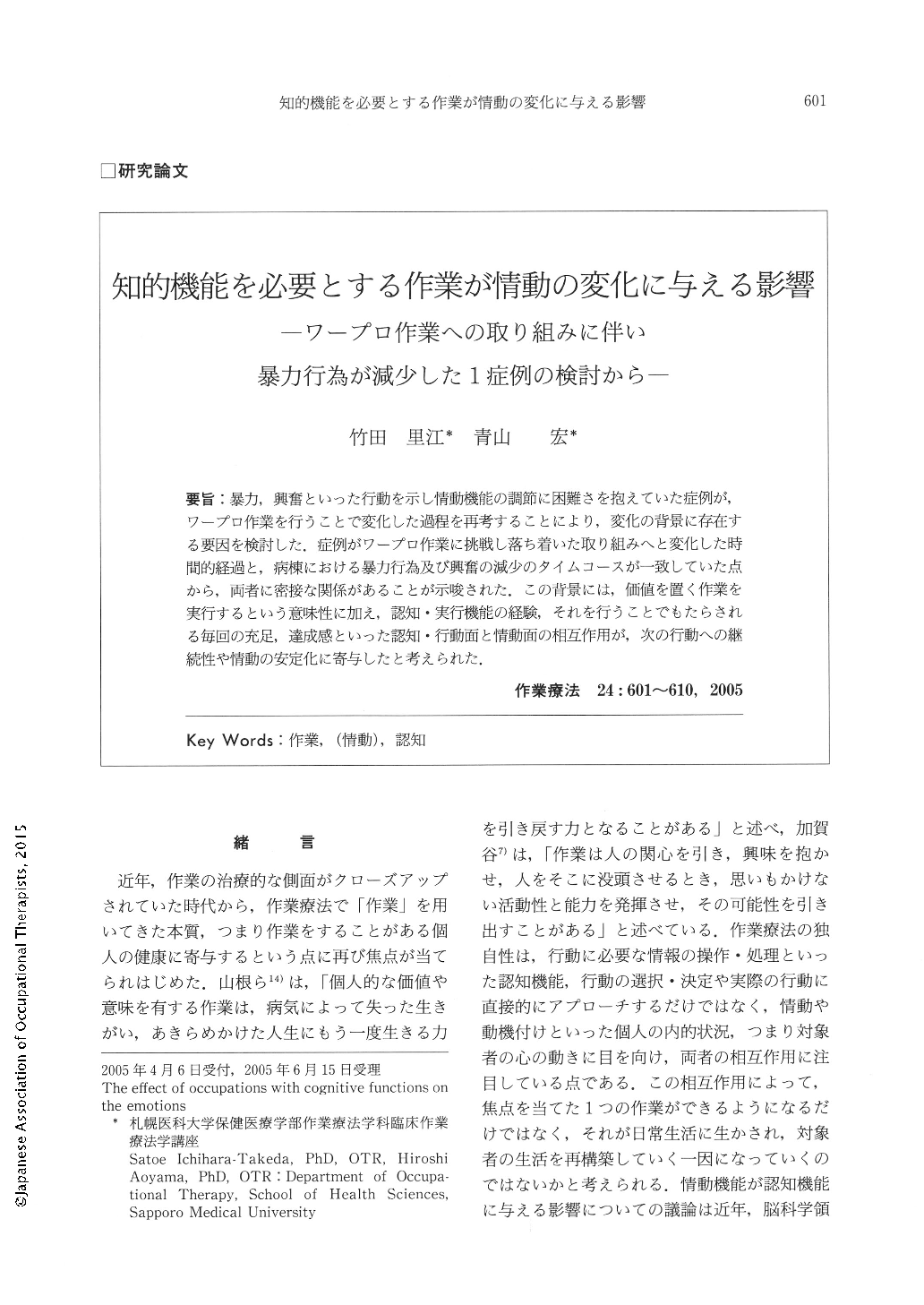Japanese
English
- 販売していません
- Abstract 文献概要
- 1ページ目 Look Inside
- 参考文献 Reference
要旨:暴力,興奮といった行動を示し情動機能の調節に困難さを抱えていた症例が,ワープロ作業を行うことで変化した過程を再考することにより,変化の背景に存在する要因を検討した.症例がワープロ作業に挑戦し落ち着いた取り組みへと変化した時間的経過と,病棟における暴力行為及び興奮の減少のタイムコースが一致していた点から,両者に密接な関係があることが示唆された.この背景には,価値を置く作業を実行するという意味性に加え,認知・実行機能の経験,それを行うことでもたらされる毎回の充足,達成感といった認知・行動面と情動面の相互作用が,次の行動への継続性や情動の安定化に寄与したと考えられた.
Several studies have focused on the efficacy of occupation in occupational therapy, but little is known about why and how an occupation with cognitive functions affects the emotions. To understand the effect of occupations with cognitive functions on the emotions, a case with chronic schizophrenia was presented by describing her time-course changes of emotional behavior such as violence and excitement. First, she was very angry and aggressive, showing violent behavior to nurses and other patients. A word-processor activity was introduced and she showed interest in it, although she often complained of her inability. The occupational therapist provided feedback time, talked about her efforts in the occupation and shared time with her. She calmed down gradually and began to be absorbed in the occupation. These results indicate that engagement in the occupation with cognitive functions such as word-processor activity and time-sharing with occupational therapists may change her affective state. This positive transformation seems to have occurred because of the interaction between cognition and emotion.

Copyright © 2005, Japanese Association of Occupational Therapists. All rights reserved.


